It is 8 p.m.
It is the middle of June 2013.
I am watching Andreas Damm and Jessica Ranville attack Act II Scene 2 of Romeo & Juliet. Their eyes are burning; their cheeks are flushed. Their movements are full of purpose and grace. The light glows warm around them with deep shadows all at the edge of the frame.
“HOLD!”
We are filming in a borrowed Park Slope brownstone. The owners left an hour ago to drive to their summer home. A summer caretaker will arrive late tomorrow. As the generous couple leaves they call out to us “you can break the urn holding my mother’s ashes but don’t let anything happen to Rosie.”
Rosie is a cat. Rosie is a very old cat.
“HOLD!”
Planes pass relentlessly overhead. I call “HOLD” over and over again. There is no crew. It is just the two actors, Rosie and myself as the planes pass one every minute.
We are reduced to shooting in the short, preciously quiet intervals. Jessica and Andreas are new to film acting. They are very accomplished theatre actors. They fight white knuckled to keep their focus and stay loose.
“HOLD!”
The details of their beautiful performances begin to crack under the stop and go pace.
“HOLD!”
We plow through the ten-page scene. One minute at a time.
“HOLD!”
It takes until one p.m. to finish.
We let Rosie out of the office. We double-check the doors and lights. We make sure Rosie has water. We turn off the lights upstairs in the spare bedroom that had served as Juliet’s chamber from which she called “Romeo, Romeo…” We leave the keys on the mantle next to mother’s ashes as instructed.
We scratch Rose behind the ears and go.
It is 4 a.m and I can’t hear a word they are saying.
I am watching the footage as it downloads in the back ground.
I go to another file and another. Romeo’s arm streaks up into the frame as Juliet appears in the second story window…
When we left did we shut that window?
The digital revolution has forever changed filmmaking. First it changed special effects. Directors and writers were no longer restrained by practicality or reality. Anything, any place, any being could be rendered digitally.
Then came the cameras: OH the cameras…
The digital revolution created affordable, DLSR HD cameras capable of shooting footage with a myriad of lenses. It created an unprecedented equality in capability no matter the budget. The democracy rendered by the revolution is what made my company Ready Set Go Theatre Company and our Web Series Shakespeare possible. Our purpose is to use the new digital equipment and new media forms available online through computers and smartphones to bring Shakespeare up to date for the benefit of high school teachers and students. This is why I was up at 4 a.m. in the middle of June 2013 with great footage, terrible unusable sound and all I could think about was a very old, very loved cat having possibly escaped a second story window.
When you have a beautiful scene with terrible sound there are two things to learn and two things to do.
First I should have noted the path of the airplanes going into LaGuardia. When you are scouting locations it is very easy to get lost in the visuals. We can become so wrapped up in the image we forget the auditory. As A.R. Gurney said, we are “imaginative, image native, a native of the image”. We live in a visual stream but we must remember to pay equal attention to our auditory environment. I should have noticed this when we were scouting.
Second you need a sound person. The ease of digitally capturing an image can confuse us into believing sound is just as easy. It is not. If you can only get one other person on set with you then have it be a sound person. Get good noise cancelling headphones and someone with a good attention span to put in between them.
When you have failed in your auditory scouting and crewing and you find yourself with beautiful footage and terrible sound shoot it all again. This time, take the time, make it happen, and create the opportunity to craft an even better version of the scene in acting, image, and audio. You must take great care to protect the actors from believing they are responsible. You have to get them on board with a reshoot as an opportunity to attack the scene at a higher level. Every good actor, I have ever met is their own harshest critic. They are not negative; they see missed opportunity and choices. If you make them your partner in the reshoot you will get fresh, visceral performances. Be ready with a suggestion, a precise direction to get them off on the right foot. Offer them a new avenue from which to approach the scene.
“Romeo, Romeo wherefore art thou…”
It is August 18th 2013 and we are reshooting our balcony scene. The night is free of planes. The lighting has created a perfectly white moon glow. We test the sound and it is clean and crisp. It is our last night of shooting and all is electric.
We finish relatively quickly, exhausted and sated.
It is June 16th 2013 at 6:30 a.m. and I am on the phone with the luthier for some of the biggest names in rock and roll. He has a key to the apartment where there may or may not still be a very old, very loved cat named Rosie. He says he will go check on Rosie and call me back.
We’ve only begun and already I have made a mistake. The final lesson to be learned is about organization and delegation. You have to get partners in crime and you must organize them. You need to be able to hand off scheduling and cat security to other people so you can focus on the work. It is hard to find these people but your process will be harder still by ten fold. Search craigslist and your friendlist for potential help. Post at local colleges, contact their media and theater departments. You’re likely to drum up a young operator or stage manager that can share the load for college credit.
The lovely Park Slope couple yawns as they show us out. August 18th becomes the 19th and Rosie sits in the upstairs window still very old, and very loved. We say goodbye to them and Rosie on their classic brownstone stoop and also say goodbye to the first part of our long journey. The long communal nights of filming are replaced by lonely nights of editing. October 31st 2014 we reach the other end of our journey when R & J (the web series) is released. We have done all this work to help high school teachers and students catch a serious case of “BardLove”. Next we will make HAMLET. This time we will work with a budget, a larger crew, and no cats.

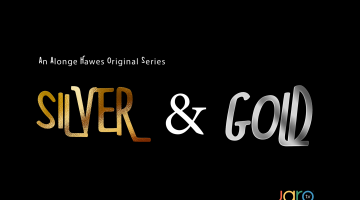

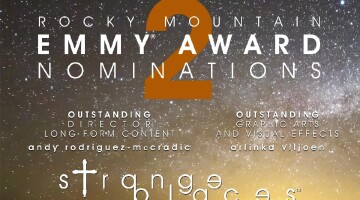

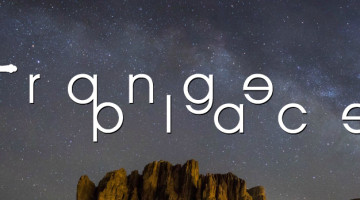

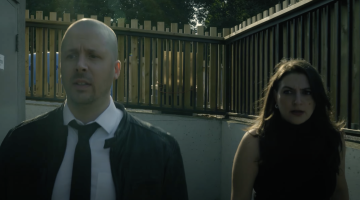
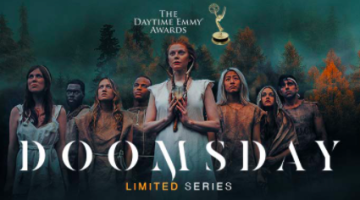
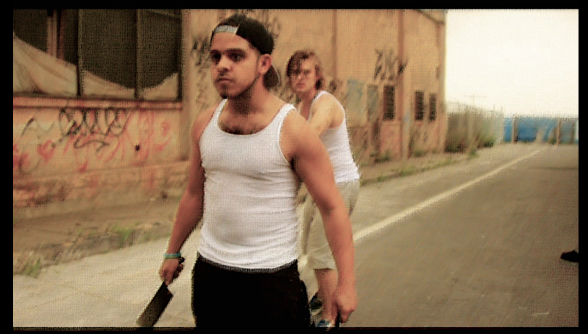
No Comment